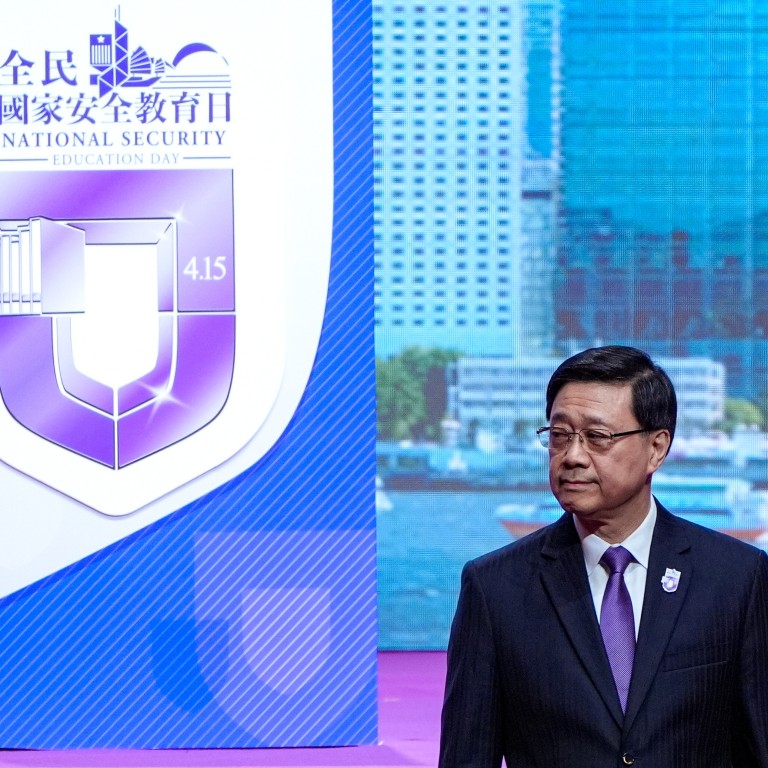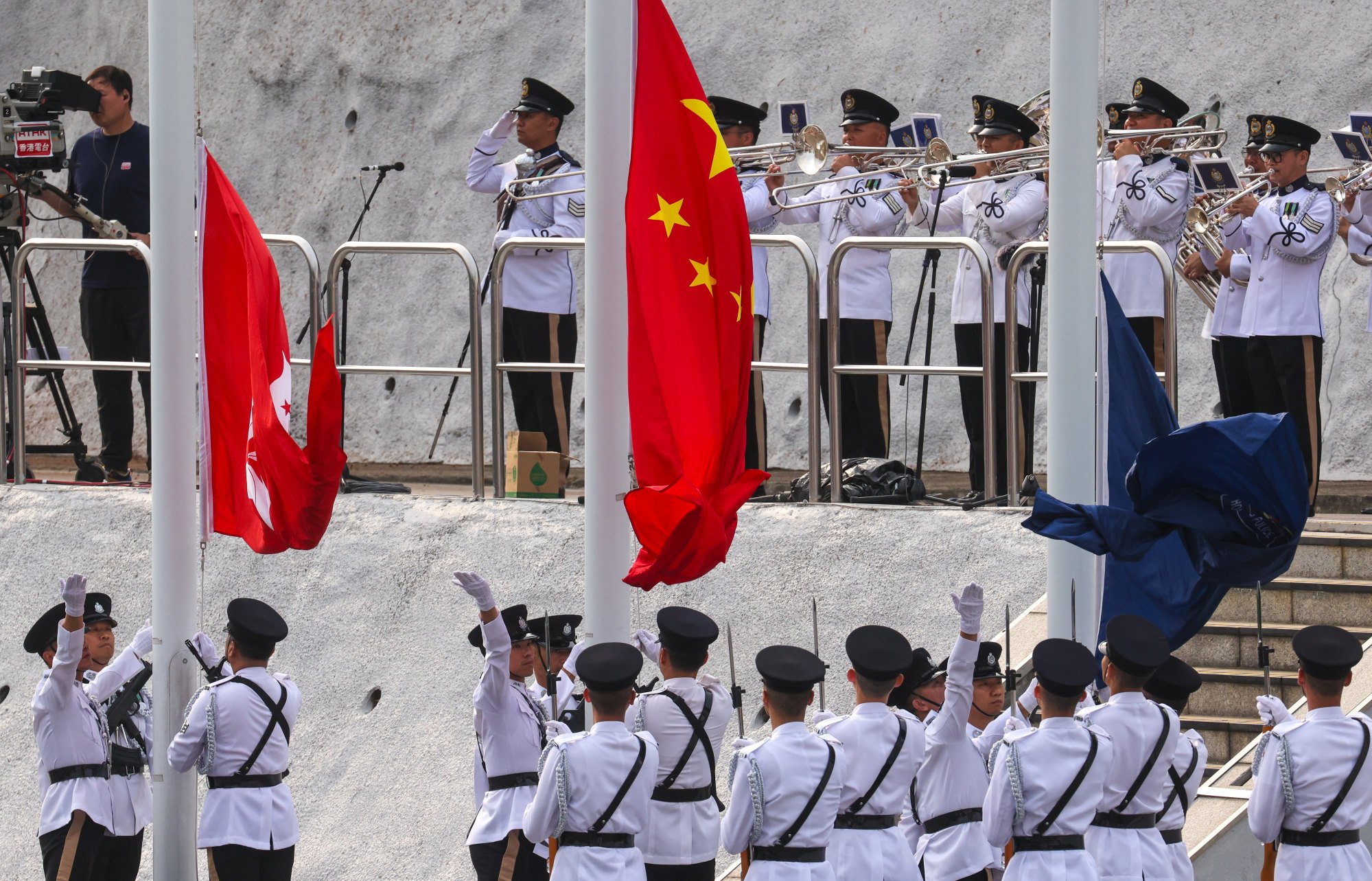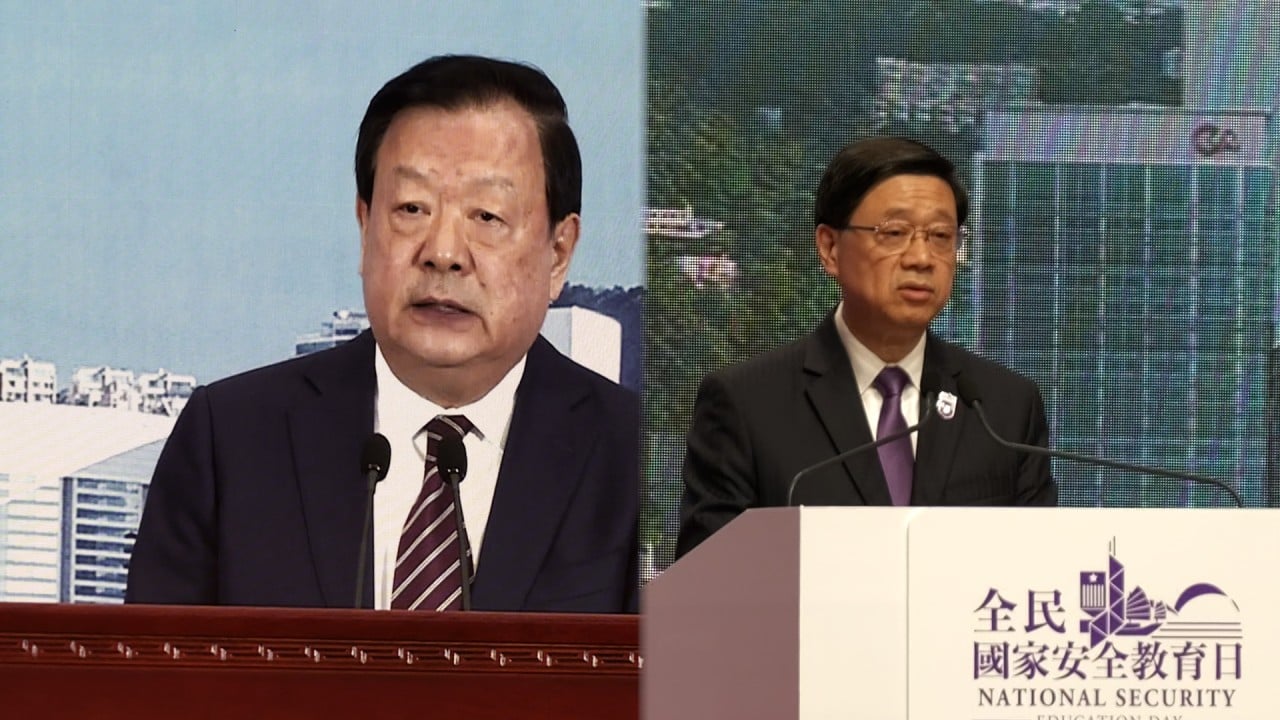
Hong Kong must remain vigilant for national security threats that can ‘spread like viruses’, city leader John Lee warns
- Threat from hostile forces will continue, Chief Executive John Lee warns in speech delivered at opening ceremony of National Security Education Day
- Lee also pledges to grow the economy through ‘five efforts’ including pursuing results with proactive government approach
Chief Executive John Lee Ka-chiu on Monday also vowed to enhance intelligence-gathering capabilities and national security education as part of the government’s continuing efforts to implement the legislation that came into effect last month.
Lee also pledged “five efforts” to grow the economy: to pursue results with a proactive government approach; to seize on technological opportunities arising from mainland China’s “new productive force”; to build up the talent pool; to capitalise on the city’s unique advantage of linking the country with the world; and to promote local consumption.
Favourable policies designed to boost Hong Kong in pipeline, Beijing official says
The chief executive argued the city should maintain vigilance over national security risks, pointing to their “sudden” and “persistent” nature.
Lee said both the “colour revolution” in 2019 – a reference to anti-government protests in the city – and a recent terrorist attack in Moscow occurred suddenly, adding that hostile forces would persist in mounting attacks against Hong Kong for their own political interests.
“The threat of hostile forces will continue [as they] wait for a chance to attack. Just like viruses, they will not stop attacking us just because we have been vaccinated,” Lee said, referring to the national security laws.
“We cannot forget the pain, simply because the wound has healed.”
Lee also highlighted the secrecy behind such national security threats.
“Foreign agents might hide in different industries to cover up. Spies might even get married and have children, and only launch a terrorist attack such as an explosion or steal state secrets before they disappear,” he said.
Lee pledged that the city would continue with its efforts to implement the new ordinance in four directions. These are explaining the law, strengthening the internal mechanisms of the government, preventing and punishing illegal acts, as well as improving law enforcers’ intelligence-gathering capacities and enhancing national security education efforts.
Hong Kong enacted its domestic national security law on March 23, targeting five major activities: treason; insurrection, incitement to mutiny and disaffection, and acts with seditious intent; sabotage; external interference endangering national security; and theft of state secrets and espionage.
Lee said his administration would focus on boosting the economy and improving people’s livelihoods after building a “protective wall” to guard against national security threats.
He said he was glad to see the business sectors had embraced changes in people’s consumption habits, including the trend of Hongkongers spending across the border, and tourists not staying overnight in the city, by strengthening their services and introducing new measures.

Hours before the high-level seminar, Tang’s bureau led the disciplined services in holding a flag-raising ceremony at the Hong Kong Police College in Wong Chuk Hang.
Chief Secretary Eric Chan Kwok-ki, who officiated at the ceremony, said the government would fully cooperate with a newly established high-level working group to promote patriotic education and focus efforts on four aspects: school education; local community; history, politics, economy and culture; and media publicity.
The Working Group on Patriotic Education, set up last week, is under the supervision of the Constitution and Basic Law Promotion Steering Committee which is chaired by Chan, the city’s No 2 official.


